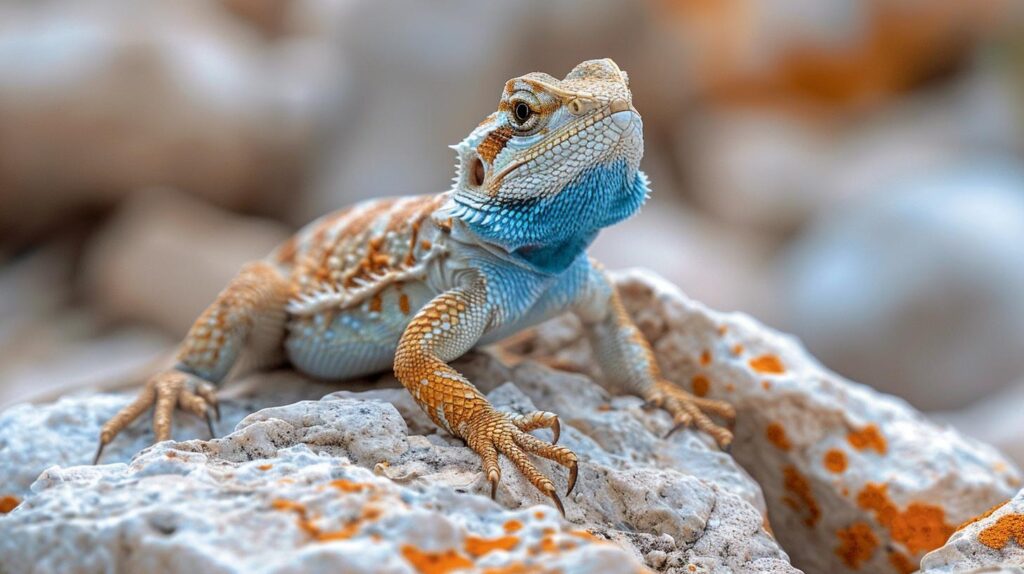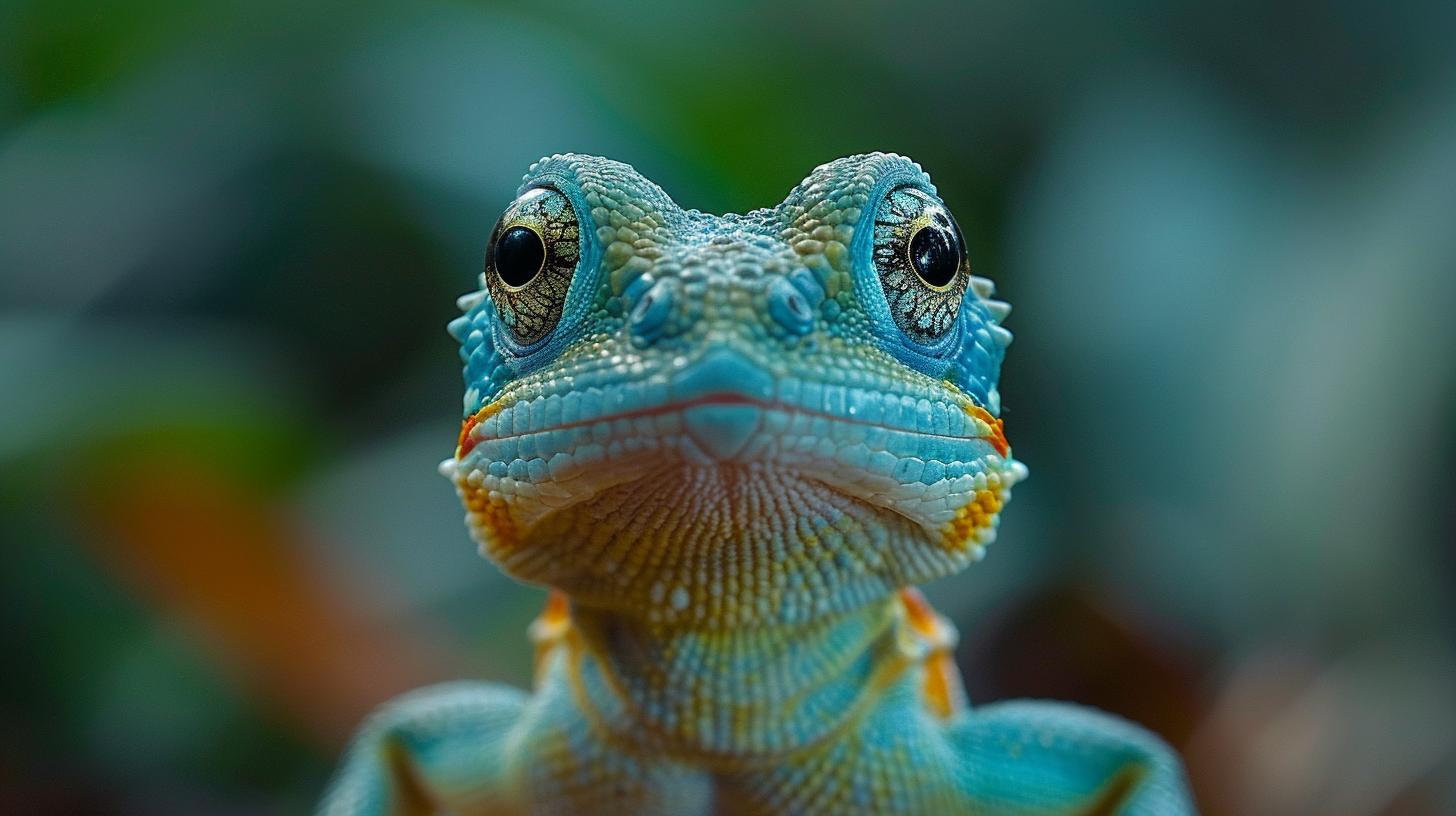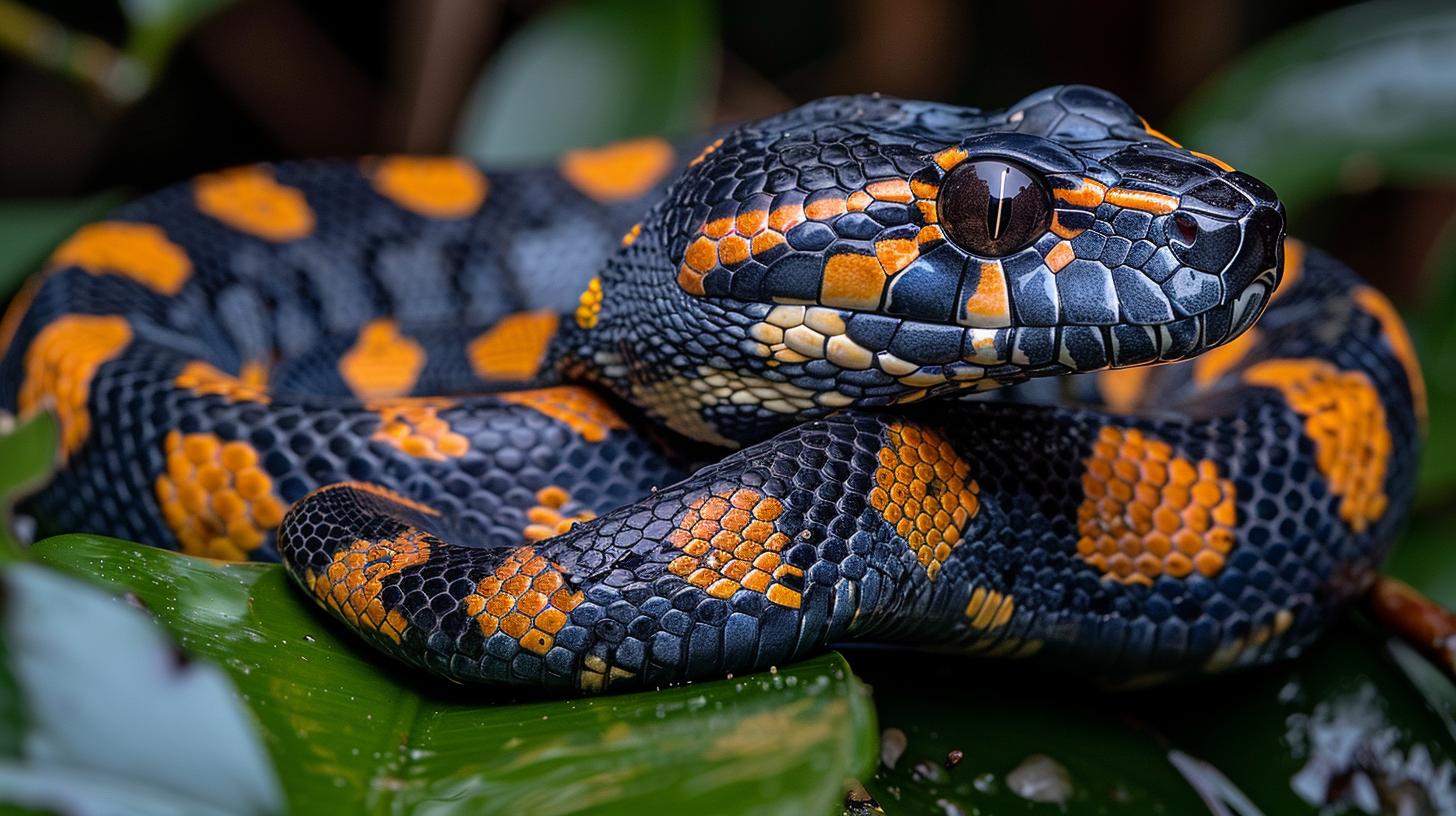What Helps Overweight Reptiles Slim Down?

Understanding Overweight Reptiles
When it comes to reptile weight loss, understanding the root causes and potential health concerns is crucial. Much like their human counterparts, reptiles can fall victim to obesity due to a combination of poor diet, lack of exercise, and insufficient environmental stimulation.
This not only compromises their quality of life but may also lead to severe health issues that necessitate immediate attention. Addressing the problem involves unveiling the underlying reasons that disrupt their natural balance and predispose them to weight gain.
The health risks associated with obesity in reptiles are multifaceted and alarming. Overweight conditions in these cold-blooded creatures can lead to significant health problems, including metabolic disorders, reduced mobility, skin issues, and even diminished life expectancy.
Understanding these concerns underscores the vital need for interventions tailored specifically to the well-being of overweight reptiles. It is not just about aesthetics or achieving an ideal weight; it's about ensuring these exceptional animals live out their lives as healthily as possible.
Proper diet plays a pivotal role in managing and preventing obesity in reptiles. Just like each species has unique behavioral and environmental needs, they also require species-specific diets that mimic what they would consume in the wild.
A diet that is not tailored to a particular species may contribute to unhealthy weight gain or nutritional deficiencies-both of which pose significant health risks. Discussing species-specific dietary needs sheds light on how feeding strategies can be optimized to support reptile weight loss efforts effectively while promoting overall health.
The Importance of a Species-Specific Diet
| Key Component | Significance |
|---|---|
| Species-Specific Nutrition | Ensures the dietary needs of the reptile are met, avoiding malnutrition or obesity. |
| Portion Control | Aids in preventing overeating, crucial for maintaining a healthy weight. |
| Variety and Quality of Food | Supports overall health and mimics natural diet patterns, enhancing weight management efforts. |
Reptiles, like any living organism, require specific nutrients and care tailored to their species to thrive. In the realm of *reptile weight loss*, understanding and implementing a species-specific diet is not just beneficial; it's imperative for their health. Each species has unique dietary needs that if ignored or misunderstood can lead to obesity or malnutrition.
For example, while some reptiles thrive on a carnivorous diet, others may require a combination of fruits, vegetables, and insects. This diversity in dietary requirements underscores why generic feeding routines can be detrimental.
When considering adjustments for an overweight reptile's diet, it's crucial to focus on both the quality and quantity of food provided. Introducing high-quality food items that are nutrient-dense rather than calorically dense can make a significant difference. Portion control plays a vital role in this context - administering meals that meet but do not exceed the nutritional requirements helps in managing weight effectively without compromising on the animal's overall nutritional intake.
Creating an optimal feeding schedule further supports *reptile weight loss* efforts by regulating digestion and metabolism processes efficiently. This approach prevents overfeeding - a common issue in reptile care that leads to weight gain.
By adjusting feeding times and quantities based on specific species needs, along with closely monitoring the reptile's response to these changes, owners can facilitate healthier weight management practices. This strategy also simulates the natural eating patterns many reptiles would experience in the wild, contributing to both physical health and mental wellbeing.
Continuing from this discussion on nutrition and feed scheduling, there is another critical aspect of handling overweight reptiles - enhancing their physical environment to encourage more activity.
Creating an Active Environment
In the journey towards achieving and maintaining an optimal weight for reptiles, the creation of a stimulating and active environment cannot be overstated. Just as in humans, physical activity is a critical component of reptile weight loss and overall health.
For reptiles, whose natural habitats often demand regular movement-whether it's searching for food, evading predators, or exploring-their enclosures should mirror these requirements as closely as possible. This imitation not only promotes physical well-being but also contributes to their mental health by reducing stress and preventing boredom.
To start, consider the specific needs of your reptile species. Here are some general guidelines that can be adapted:
- For climbing species: Incorporate branches, vines, and vertical structures that encourage your pet to move upwards and across different levels.
- For ground-dwellers: Offer a variety of substrates and hiding spaces that invite exploration and digging.
- Aquatic or semi-aquatic species: Ensure there is enough water not just for swimming but also for engaging play; think about adding streams or waterfalls to encourage movement.
These features stimulate natural behaviors leading to increased physical activity which is crucial for *reptile weight loss*. By regularly adjusting these elements in the enclosure, you also provide necessary mental stimulation by introducing novel challenges for your reptile to overcome.
Another aspect of creating an active environment involves interaction with your pet outside its enclosure when safe and appropriate. Direct engagement through gentle handling sessions or guided explorations in a secure room can further contribute to their exercise routine. Remember, the aim is to mimic natural movements and activities as closely as possible-this approach helps ensure that your pet stays both physically fit and mentally sharp.
Finally, integrating technology designed specifically for promoting reptilian activity can offer additional benefits. Tools such as laser pointers (used safely) or motorized toys can captivate attention and induce chase behaviors mimicking hunting instincts in wild settings.
Through careful planning and regular updates to their living space, you can support your reptile's journey towards a healthier weight while enriching their daily life immensely. As we continue exploring strategies for managing reptilian obesity, it becomes clear how interconnected diet control, environmental enrichment, and routine veterinary care are in fostering a vibrant lifestyle conducive to *reptile weight loss* without compromising on enjoyment or well-being.

Scheduled Feeding vs Free-Feeding
In the journey towards reptile weight loss, understanding the feeding strategy that best suits your pet is pivotal. Scheduled feeding and free-feeding represent two distinct approaches, each with its benefits and challenges. Shifting from a free-feeding routine, where food is continuously available, to a scheduled feeding regimen can significantly impact your reptile's health and contribute to weight management.
Scheduled feeding involves providing meals at set times of the day, often mimicking natural eating patterns specific to the reptile's species. This controlled approach not only helps regulate food intake but also enables closer monitoring of the quantity and quality of food consumed. It contributes noticeably to reptile weight loss by preventing overeating and obesity, common issues in captive environments.
To implement an effective scheduled feeding plan, consider the following steps:
1. Research Your Reptile's Dietary Needs: Different species require unique diets and feeding frequencies.
2. Establish a Feeding Schedule: Based on your research, create a timetable that suits both you and your reptile, aiming for consistency.
3. Monitor Food Intake: Pay close attention to how much your reptile eats at each meal to adjust portions as necessary.
4. Evaluate Progress Regularly: Adjust the diet and schedule depending on your reptile's weight loss progress and overall health.
Conversely, free-feeding might seem convenient but often leads to unregulated eating habits, contributing to weight gain among reptiles. Without set meal times, it becomes challenging to track how much food your pet consumes daily, making dietary adjustments difficult when needed.
Scheduled feeding not only aids in achieving optimal *reptile weight loss* goals but also strengthens the bond between you and your pet through regular interaction during meal times. It instills discipline in their daily routine, helping create a stable environment that contributes positively to their physical health.
As we delve deeper into strategies for managing overweight reptiles in subsequent sections of this article, remember that transitioning from free-feeding to scheduled meals requires patience and perseverance. The change won't happen overnight but can make a significant difference in ensuring a long, healthy life for your scaly friend.
The Role of Veterinary Care in Weight Management
In exploring the pathways towards achieving optimal health for overweight reptiles, it becomes increasingly clear that professional guidance stands as a cornerstone of effective weight management. Navigating through the complexities of diet, exercise, and habitat adjustments indeed contributes significantly to a reptile's journey towards a healthier weight.
However, integrating the expertise of veterinary professionals can elevate this process by tailoring approaches specifically to an individual reptile's needs. Veterinary care not only offers precise diagnostic tools but also provides specialized knowledge that can be pivotal in addressing and rectifying underlying health issues contributing to weight gain.
Customized Nutritional Plans
One of the critical roles veterinarians play in managing reptile weight loss is through the development of customized nutritional plans tailored to each species' unique requirements. This level of customization goes beyond generic diet recommendations by considering factors such as age, current health status, and specific nutritional needs dictated by species.
Such bespoke diets ensure that every meal contributes positively to the reptile's overall well-being and weight goals without compromising on its nutritional requirements. Moreover, veterinarians can offer invaluable advice on supplementing these diets with vitamins or minerals essential for supporting healthy metabolic functions critical in promoting weight loss.
Addressing Underlying Health Issues
Obesity in reptiles might often be a symptom rather than a standalone issue, suggesting underlying health concerns such as hormonal imbalances or metabolic disorders. Regular veterinary examinations are imperative in unearthing these hidden conditions, which could hinder progress if left untreated.
Early detection facilitated by vets can lead to prompt intervention strategies-ranging from medication to lifestyle adjustments-that tackle these root causes effectively. This holistic approach ensures that every aspect of the reptile's health is considered and cared for, markedly improving chances of successful weight management.
Moving Beyond Traditional Solutions
The role of veterinary care extends beyond nutrition and diagnosis; innovative solutions like physiotherapy have emerged as beneficial adjuncts in managing reptile obesity. Veterinarians specializing in exotic pet care are now incorporating exercises tailored to stimulate physical activity in captive environments-thereby addressing one of the core challenges in reptile obesity: sedentariness.
By advising on specific activities suited to each species' natural behaviors, vets play an indispensable role in creating dynamic environments that foster both mental and physical well-being alongside contributing directly to reptile weight loss
Henceforth, collaborating closely with veterinary professionals does not merely complement traditional methods aimed at reducing body mass among obese reptiles-it revolutionizes it by introducing precision, personalization, and proactive adjustments based on evolving insights into a pet's health status and response to treatment. Indeed, veterinary oversight introduces an additional layer of support foundational not just for achieving ideal weights but for sustaining these benefits long term within adapted lifestyles suitable for each unique creature under their care.
Monitoring Progress and Adjusting Strategies
Engaging in a journey to facilitate reptile weight loss requires not only initial action but also ongoing assessment and adaptation. The success of such a venture largely depends on the ability to closely monitor the health and physical condition of your reptile over time, making informed adjustments to care strategies as needed. This process ensures that efforts towards achieving a healthier weight are both effective and safe, avoiding potential stress or harm to your pet.

Setting Benchmarks for Success
The first step in this vigilant monitoring is establishing clear, realistic benchmarks for your reptile's weight loss. These goals should be set in consultation with a veterinary professional who understands the specific needs and limitations of the species in question.
This partnership can provide a roadmap tailored to your pet, incorporating milestones that encourage gradual, healthy weight reduction. By setting these benchmarks, you create a framework within which progress can be assessed more objectively, recognizing achievements along the way and identifying when adjustments might be necessary.
Regular Check-Ups and Weight Tracking
Periodic weigh-ins play a critical part in monitoring progress. Employing a consistent schedule, perhaps monthly or bimonthly depending on the advice from your vet, allows for precise tracking of changes over time. In addition to at-home checks, regular veterinary appointments are invaluable.
These not only serve to validate your own findings but also give an opportunity for professional evaluation of overall health beyond just weight numbers. During these visits, discussing any concerns or observations you've made regarding behavior or dietary responses can offer further insights into how well current strategies are working.
Adapting Care Based on Outcomes
One should expect some degree of trial and error when it comes to optimizing reptile care for weight loss Initial strategies might require fine-tuning; what works well for one reptile may not suit another even within the same species due to individual health conditions or preferences. If progress stalls or if unexpected issues arise, it underscores the need for flexibility in your approach.
Adjustments could involve tweaking dietary compositions, introducing new forms of environmental enrichment to stimulate activity, or reevaluating feeding schedules. Ultimately, each adjustment signifies a commitment to finding the best path forward for your pet's health-a testament to responsible ownership.
In sum, careful monitoring coupled with readiness to adapt techniques as needed lays the foundation for successful *reptile weight loss*. It embodies an approach centered around patience, persistence, and attentiveness to every facet of your reptile's well-being during their journey towards optimal health.
Real-Life Success Stories
As we wrap up our exploration of overweight reptiles and the journey towards healthier, slimmer lives, it's clear that the path to reptile weight loss is multifaceted, requiring a blend of species-specific diets, an active environment, disciplined feeding routines, and crucial veterinary support. These elements are not just isolated pieces of advice but integral parts of a comprehensive approach to ensure the well-being and longevity of these remarkable creatures.
The real-life success stories shared in our discussion stand as testament to the transformative power of dedicated care, patience, and understanding of each reptile's unique needs.
Encouragingly, these narratives illuminate not only the possibility but also the rewarding process of guiding overweight reptiles towards a healthier weight. They underscore the importance of recognizing early signs of obesity, implementing changes with professional guidance, and persistently monitoring progress with love and attention. For pet owners embarking on this journey, these stories serve as beacons of hope-proof that with the right strategies and support, achieving a healthy weight is within reach for their scaled companions.
Intrigued by these insights into improving your reptile's health? We invite you to delve further into our website where we continue to share knowledgeable articles filled with tips and tricks for pet care.
Whether you're seeking guidance on specific dietary needs or constructing enriching habitats for your pets, our collection offers a wealth of information designed to support you in fostering enviable health and happiness for your scaled family members. Dive into our content library today for more inspiring tales and expert advice-it's your go-to resource for taking proactive steps toward optimal pet care practices.
Frequently Asked Questions
How Do I Get My Lizard to Lose Weight?
Encouraging a lizard to lose weight involves a combination of proper diet and increased activity. Feeding your lizard the correct type and amount of food, as per the species' nutritional needs, is paramount.
Consulting with a veterinarian who specializes in reptiles can provide you with a tailored diet plan. Additionally, creating an environment that encourages physical activity, such as adding climbing branches or rocks and ensuring there is enough space for exercise, will help in promoting weight loss.
What Tests Are Done for Unexplained Weight Loss?
For unexplained weight loss, doctors may perform a series of tests to diagnose the underlying cause. These typically include blood tests to check for infections, thyroid issues, and signs of nutrient deficiencies.
Imaging tests like CT scans or MRIs can be used to look at internal organs for any abnormalities. Depending on initial findings, more specialized tests might be ordered to further investigate potential causes.
How Long Does Weight Loss Plateau Last?
A weight loss plateau can last anywhere from a few weeks to several months. It occurs when the body adapts to dietary and lifestyle changes made for weight loss and temporarily stops losing weight despite continued efforts. Overcoming it usually requires reassessing calorie intake and expenditure through diet modification or altering exercise routines.
When Should Weight Loss Be Alarming?
Weight loss becomes alarming when it is unintended and rapid, meaning losing more than 5% of your body weight within six months without trying. This can be an indicator of underlying health issues ranging from digestive problems to serious conditions such as cancer or metabolic disorders.
If you experience sudden significant weight loss, it's essential to consult with a healthcare professional promptly.
What Cancers Cause Rapid Weight Loss?
Certain cancers are known for causing rapid and unexplained weight loss as an early symptom, including cancers of the pancreas, stomach, esophagus, lung, and bowel among others. Rapid weight loss due to cancer often results from the consumption of energy by the growing tumor and the body's response to malignancy which impacts metabolism and reduces appetite.
Leave a Reply
You must be logged in to post a comment.